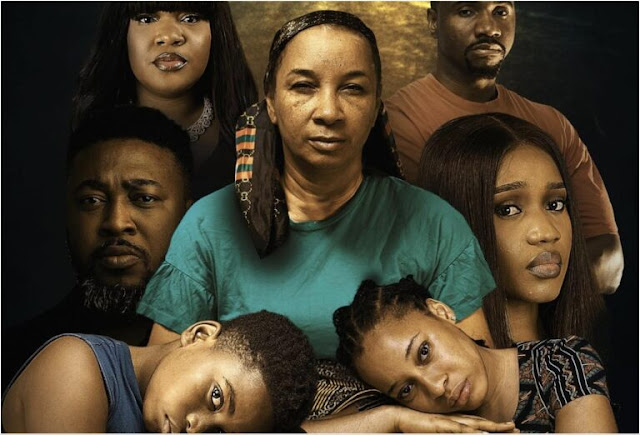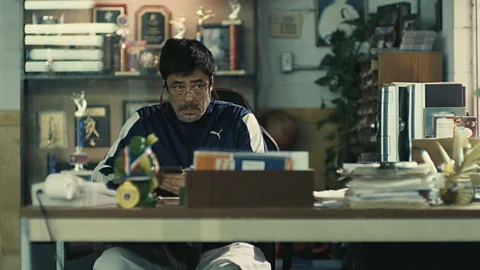| Image: Facebook |
Tare is a film that revisits the essence of classic Nollywood storytelling, where raw emotions and real-life struggles take center stage. Unlike the glitzy productions of modern cinema, Tare relies on a compelling narrative and strong performances to connect with its audience, particularly highlighting the challenges faced by impoverished families before the promise of hope and success. Directed by Okey Oku and Stanley Obi, the movie features a talented cast including Ibinabo Fiberesima, Jide Kene, Nosa Rex, and Toyin Abraham. Yet, it is the story itself, coupled with impressive performances from young actors, that makes this film memorable.
Plot Summary: A Story of Sacrifice and Survival
At its core, Tare is a gripping family drama. The film follows a young mother, Tare, who abandons her family in pursuit of personal ambitions, leaving her children to navigate life alone. Her eldest daughter, Ebiere, becomes the pillar of support for her siblings following the death of their father. The narrative follows Ebiere as she sells fish and takes on adult responsibilities, sacrificing her own childhood to keep her family afloat.
The story takes a hopeful turn when Ebiere and her siblings encounter Chief Awunor and a compassionate NGO worker, who provide them with access to education and a path toward stability. Through these interactions, the children begin to rebuild their lives, breaking free from the cycle of neglect and hardship left behind by their mother. The film highlights not just the resilience of the children but also the impact of community support in changing the trajectory of lives burdened by misfortune.
Performances: Child Actors Steal the Show
While Toyin Abraham is prominently featured on the movie poster, her screen time is minimal, appearing in just one pivotal scene. It seems her inclusion on the poster was primarily to draw audiences, yet the film’s emotional impact does not rely on her role. Instead, the young actors, particularly the girls portraying Ebiere and Layefa, shine as the heart of the story. Their command of pidgin English and naturalistic performances give the film authenticity and depth.
The young Ebiere, in particular, bears a remarkable resemblance to the adult Ebiere, suggesting a deliberate casting choice to emphasize continuity in character development. The subtle mannerisms carried from childhood into adulthood added layers of believability to the storytelling. Watching these young actors deliver such nuanced performances is one of the movie’s most rewarding experiences.
Ibinabo Fiberesima: Portraying a Flawed Mother
Ibinabo Fiberesima delivers a compelling performance as Tare, the mother whose selfishness and abandonment are central to the plot. Her portrayal captures the frustration, negligence, and vulnerability of a mother whose choices have far-reaching consequences for her children. Her Niger Delta accent, coupled with her delivery in pidgin English, adds authenticity to the character, making her both relatable and infuriating in equal measure. Tare reminds audiences that not all mothers embody nurturing qualities, and some choices leave lasting scars on families.
Setting and Cinematography
The movie’s locations, while limited to a few key areas, effectively enhance the story. The depiction of the Niger Delta creeks, where the children struggle to survive, is particularly striking. The harsh living conditions, combined with the constant presence of mosquitoes and natural elements, underscore the severity of the children’s hardships. The simplicity of the settings, though modest in visual appeal, contributes to the film’s raw and grounded aesthetic.
Overall Impression
Tare is a deeply emotional film, reminiscent of Old Nollywood’s emphasis on storytelling and moral lessons. Its picture quality may not match modern cinematic standards, but the narrative strength, acting prowess, and emotional resonance compensate for technical limitations. The film is both moving and relatable, with the child actors providing an authenticity that makes the story feel immediate and real.
Ultimately, Tare is a testament to resilience, sacrifice, and the transformative power of community support. It encourages families to value unity, to be there for one another, and to cherish the bonds that help navigate life’s toughest challenges. With a rating of 7/10, this film is highly recommended for family viewing, particularly for those who appreciate heartfelt stories rooted in real-life struggles.
Verdict: A Nostalgic Journey with Powerful Lessons
Tare successfully revives the emotional intensity of classic Nollywood, balancing hardship and hope in a story that resonates long after the credits roll. While the film may not rely on modern cinematic flair, its focus on character, story, and moral lessons ensures it leaves a lasting impression on viewers.
Watch Trailer:
#Tare
#TrendingNow
#NollywoodTimes















Leave a Reply